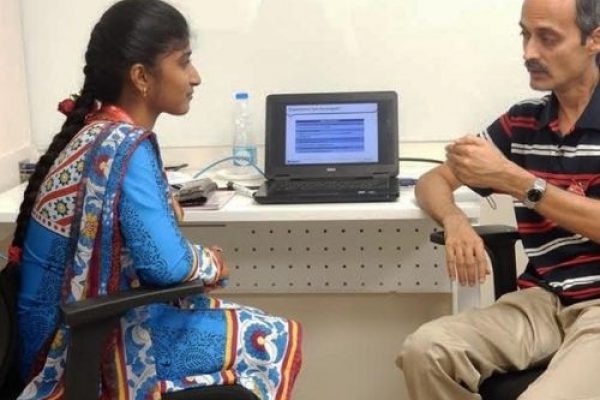The idea behind the FFE scholarships is that students will graduate, get their jobs, and take care of their families to bring about a transformation
What makes an immunologist working on vaccine trials want to become a volunteer for awarding merit-cum-means scholarships?
“The kind of satisfaction you get is unparalleled, I can’t imagine going back to the corporate world,” says Sudha Kidao, managing trustee of the Bengaluru-based Foundation for Excellence India Trust (FFEIT), an NGO which provides scholarships for students from economically weaker backgrounds. “Initially, I felt I was missing science, but I have met so many inspiring people in this phase and there is no other way I could have met them.”
The scholarships are offered to students to study engineering or medicine. The trust works closely with the USA-based Foundation for Excellence (FFE), founded by Prabhu and Poonam Goel. Over the years, they have supported thousands of students in India; they presently support students across 27 states.
“If we were to support them financially, the idea is they will graduate, get jobs, take care of their families, and bring about a transformation,” explains Sudha, who began working for the organisation in 2007. “They also donate to the foundation. In the last few years, alumni have donated over ₹50 lakhs every year.”
This has been matched by the Cognizant Foundation to support scholarships for over 250 students. “We call this circle of giving, where a donor funds an unknown student, once the students become professionals they give back to the foundation, they promote FFE in their own networks, they connect us to the companies they work with and get CSR funding. They also become mentors or volunteers. They give back in so many ways.”
Mentoring is one of the most important steps in their scholarship programme, which, Sudha says, is what differentiates FFE from other scholarship programmes.
“We found that these students, who largely come from rural or semi-rural backgrounds, have managed to get into colleges, and ace entrance exams by their effort. They move to other cities on their own, struggle through their first year, maintain a high GPA, and get good interviews but are finally unable to get the job. This happens because of lower levels of soft-skills. They have low self-esteem, and poor communication skills and so sometimes do not make it through the HR rounds. They are there but they are not quite there, so we figured there is a skill gap.”
The organisation addresses these gaps through soft skill training programmes provided through the students’ smartphone apps. They also help students find internships in corporates, who also often offer workshops to select students, depending upon their localities. All Engineering students at FFE today have a curated skills-training program from the second to the fourth year of engineering, funded by the Michael and Susan Dell Foundation. A program pairing industry mentors to third year engineering scholars to mentor them through work-readiness skills for employability is also offered. Since students and mentors may be in different locations, sessions are often conducted through an app or video conferencing.
“Earlier we could not reach out to smaller towns, we didn’t have the bandwidth, despite hosting open houses in different cities. Today, because of technology, which drives the skill training programmes, we are tracking every student, to see how they are doing, or where they are stuck. We call the students several times a year.”
Though they have nearly 5,000 students on board, with scholarships amounting to over ₹20.7 crores (FY 2017-18), they are still having to turn away eligible candidates. However, they maintain significant growth from FY 2011-12 when FFE awarded scholarships to 1,146 students amounting to ₹2.5 crores. “The vision of the Foundation is not just to create these numbers, we want to make sure we are continuing to support students so there is transformation. We don’t simply want to create engineering graduates who have nothing to do,” explains Sudha. “We are not as interested in the numbers as we are in the quality of the students who will become ambassadors of the programme.”
This is why they are presently working on a similar mentorship-skill training programme for medical students. “Doctors say that these students are confused because they think the only future they have is in specialisation, with an MD. Doctors also tell us that the future lies in understanding how to use newer, emerging technologies.”
And employability is not as straightforward since many of them don’t want to take up jobs in the towns they came from. “At the same time, the young doctors acknowledge they are first doctors in their villages. They want to gain experience here.” Another aspect that the organisation is considering is the future of technology. “We don’t know whether university degrees may at all be essential five years down the line. It may be that companies will look for specific skills rather than a degree. We are thinking about this so we can be ready to adapt.”







